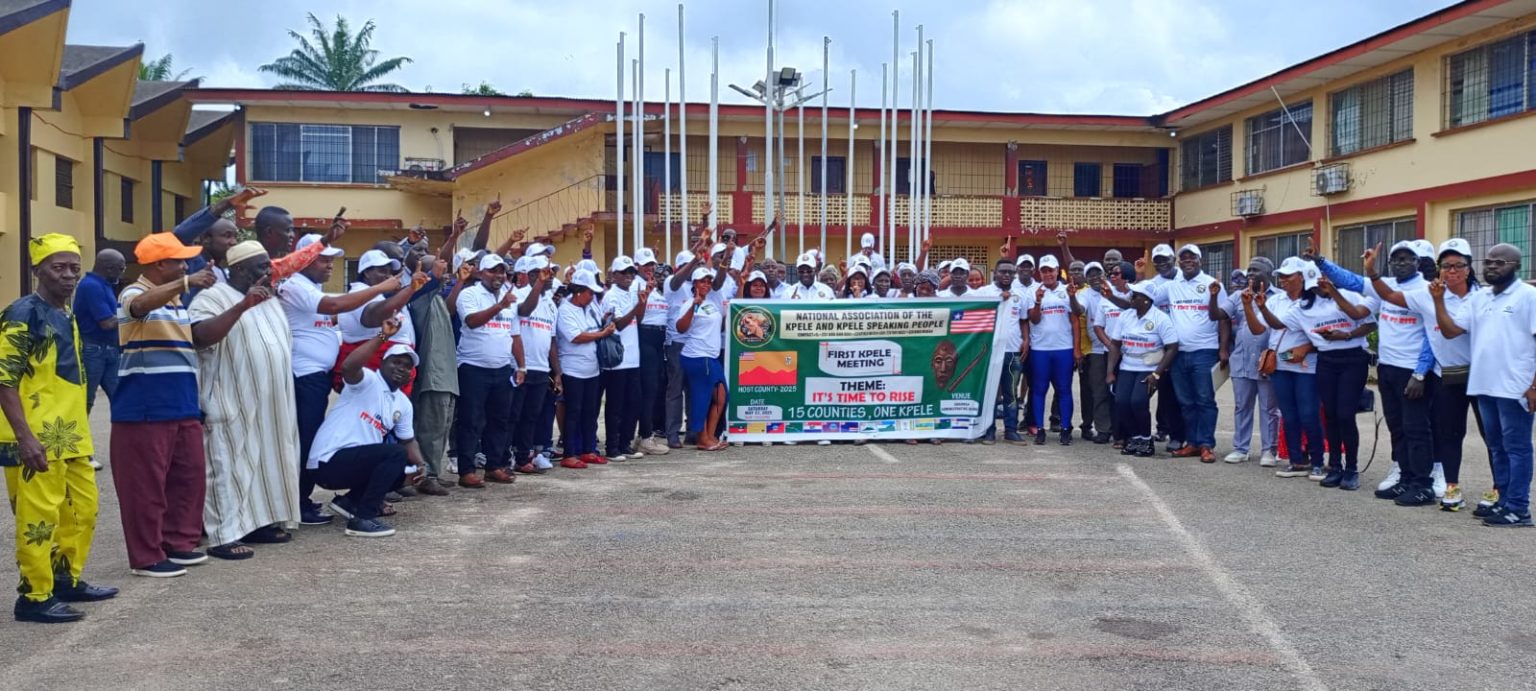The declaration of the National Kpelleh Speaking Tribe marks a pivotal moment in Liberia’s history, signifying a powerful movement towards unity, cultural preservation, and reconciliation for the nation’s largest ethnic group. The historic gathering in Gbarnga, Bong County, brought together diverse representatives of the Kpelleh people – elders, political leaders, traditional chiefs, youth, and community members – all united by a shared heritage and a vision for a stronger, more unified future. The event resonated with a spirit of collective pride, reflection on the past, and a renewed sense of hope for the future.
Central to the gathering was the formal declaration of unity, powerfully articulated by former Senator Henry Yalleh. His address transcended mere political rhetoric, resonating with a deep emotional connection to the Kpelleh identity. Yalleh emphasized the urgent need to transcend internal divisions stemming from dialect, county lines, or remnants of colonial boundaries. He called for a consolidated identity, urging the community to reject fractionalizing labels and embrace a single, unified identity as “Liberian Kpelleh.” This clarion call for unity resonated deeply with the attendees, many moved to tears by his powerful message. The declaration established the third Saturday of May as National Kpelleh Unification Day, a day dedicated to celebrating the rich culture, resilience, and strength of the Kpelleh people.
The gathering featured a series of compelling addresses by prominent figures in Liberian society, encompassing both political and academic spheres. Former Senator Franklin O. Siakor delved into the historical roots of the Kpelleh people, exploring the enduring values that have shaped their identity through centuries of migration, colonization, and the challenges of modernization. Dr. J. Kerkula Foeday presented a forward-looking vision for the Kpelleh people, emphasizing educational advancement, cultural revival, and strengthened political representation. His message particularly resonated with the youth, encouraging them to harness the power of technology while preserving their rich cultural heritage. These speeches provided a framework for understanding the past, present, and future trajectory of the Kpelleh people.
Political leaders, recognizing the significance of this cultural mobilization, also lent their support to the initiative. Bong County Senator Prince K. Moye hailed the gathering as a momentous occasion, recognizing its potential to transform the cultural landscape of Liberia. Former Vice President Jewel Howard Taylor’s presence and endorsement further underscored the national importance of the event, urging national stakeholders to embrace this cultural reawakening as a pathway to broader national unity and reconciliation. This high-level political support signals a potential for tangible action and policy changes that could further empower the Kpelleh people.
The culmination of the gathering was the formal establishment of the National Association of the Kpelleh and Kpelleh Speaking People, a crucial step towards consolidating the movement’s gains. This umbrella organization will serve as a central platform for collaboration, fostering unity of purpose, and coordinating development initiatives across Kpelleh communities nationwide. By providing a unified voice for the Kpelleh people in national discourse, the association aims to strengthen their political influence and advocate for their collective interests. The leadership of former Senator Yalleh, invoking the legacy of Ambassador Dr. Jeremiah C. Solunteh, further solidifies the organization’s commitment to its goals.
Beyond the political and organizational aspects, the event was a vibrant celebration of Kpelleh culture. Traditional dances, songs in the native Kpelleh language, the vibrant display of traditional regalia, and the sharing of folk stories by elders infused the gathering with a deep sense of cultural pride and connection. Local artists showcased their talents, performing pieces that honored the Kpelleh identity, reinforcing the importance of artistic expression in preserving and transmitting cultural heritage. This rich tapestry of cultural expression served as a powerful reminder of the vibrant traditions that bind the Kpelleh people together. This emphasis on cultural celebration underscores the importance of preserving and transmitting heritage to future generations, ensuring the continuity of Kpelleh identity.
The declaration of the National Kpelleh Speaking Tribe is not merely a symbolic gesture; it represents the beginning of a powerful movement aimed at translating words into concrete action. The focus on reclaiming language, reuniting communities, and repositioning the Kpelleh people as a unified force in Liberia’s democratic and cultural landscape signals a renewed sense of purpose and agency. Through a combination of educational initiatives, cultural festivals, and political engagement, the Kpelleh people are actively shaping their own future, rewriting their narrative with pride, purpose, and unity at its core. This proactive approach demonstrates a commitment to not just preserving the past but actively shaping the future of the Kpelleh people.
The gathering in Gbarnga represents a turning point for the Kpelleh people. It signifies a shift from internal divisions and external pressures towards a unified and empowered collective identity. By reclaiming their narrative and embracing their shared heritage, the Kpelleh people are not only strengthening their own community but also contributing to a more unified and vibrant Liberia. Their journey towards unity and cultural revitalization has just begun, and their story, once fragmented, is now being rewritten with a renewed sense of purpose and a powerful vision for the future. This movement has the potential to serve as a model for other ethnic groups in Liberia and beyond, demonstrating the transformative power of unity and cultural pride.














